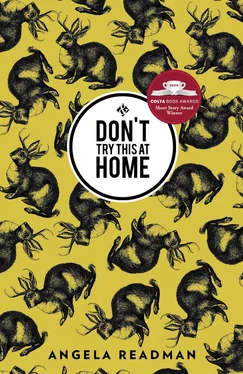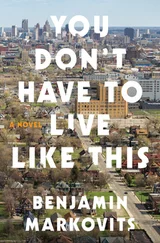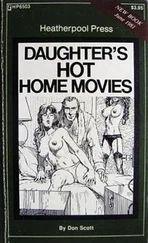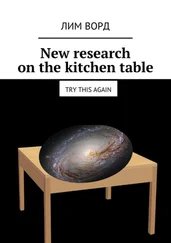Angela Readman - Don't Try This at Home
Здесь есть возможность читать онлайн «Angela Readman - Don't Try This at Home» весь текст электронной книги совершенно бесплатно (целиком полную версию без сокращений). В некоторых случаях можно слушать аудио, скачать через торрент в формате fb2 и присутствует краткое содержание. Год выпуска: 2015, Издательство: And Other Stories, Жанр: Современная проза, на английском языке. Описание произведения, (предисловие) а так же отзывы посетителей доступны на портале библиотеки ЛибКат.
- Название:Don't Try This at Home
- Автор:
- Издательство:And Other Stories
- Жанр:
- Год:2015
- ISBN:нет данных
- Рейтинг книги:4 / 5. Голосов: 1
-
Избранное:Добавить в избранное
- Отзывы:
-
Ваша оценка:
- 80
- 1
- 2
- 3
- 4
- 5
Don't Try This at Home: краткое содержание, описание и аннотация
Предлагаем к чтению аннотацию, описание, краткое содержание или предисловие (зависит от того, что написал сам автор книги «Don't Try This at Home»). Если вы не нашли необходимую информацию о книге — напишите в комментариях, мы постараемся отыскать её.
Don't Try This at Home — читать онлайн бесплатно полную книгу (весь текст) целиком
Ниже представлен текст книги, разбитый по страницам. Система сохранения места последней прочитанной страницы, позволяет с удобством читать онлайн бесплатно книгу «Don't Try This at Home», без необходимости каждый раз заново искать на чём Вы остановились. Поставьте закладку, и сможете в любой момент перейти на страницу, на которой закончили чтение.
Интервал:
Закладка:
‘Quiet night, eh?’ she said.
And there was Elvis again, for a heartbeat, as if he’d never left and was just waiting in the wings — if my mother would allow him to make a comeback. Elvis looked at the lass. Feathery hair, pianist fingers laid flat on the counter, no ring, dimples between her eyes and lips. The woman in the chippy shrugged off a smile and stormed on the salt.
‘You want scraps?’ she said.
Birds Without Wings
Last summer, it was me and Eva against everything evil in the world: swimsuits, kale, something that buzzed in our room. Yet I couldn’t stop thinking about Diana Pinter, some girl at school who went to Paris with her mother. I lay on a bunk scratching mosquito bites and pictured them outside the Eiffel Tower, eating salad in the rain. I flicked through the magazines Mom posted, girls with eyes lost as gazelles. Their hair was molasses, candy-apple shiny, the colour of Twinkies. My stomach growled. It would be dinner soon, something steamed. A postcard and cash fell out of Vogue , Mom’s handwriting like spun silk. Hope you’re having a good time. Be good! We’ll go shopping when you get home. I knew what ‘be good’ meant. I shoved the twenty in my sock and dangled to high-five Eva on the bottom bunk.
This summer would be different. Mom wanted us to take a trip. Dad was working and my brother wouldn’t come. Ed was oddly self-sufficient. He lived in a fort of science books in his room: at nine, he wasn’t interested in sports camp. If there’d been an accountancy camp he’d have jumped in line. A camp where boys learned to give bad financial news and crinkle their brows exactly like their fathers would suit him just fine.
‘What do you think? Just the two of us,’ Mom said. ‘Won’t it be fun?’
I wasn’t sure. Fun and Mom went together as well as she said my shoes matched my blouse. I watched her fiddle with lilies in the vase in the lounge again, fingertips unable to resist trying to improve their elegance.
No camp! I thought. No hikes, kale or treasure hunts (hikes in disguise — except with fruit and a whittled wooden otter, rabbit, any animal that could be described as a ‘critter’, at the end).
‘Where do you wanna go?’ I said.
‘Mexico,’ Mom replied.
Not Paris or Venice, which was weird. Her friends usually took their daughters to glistening cities of tiny espresso cups and art galleries, to cram in a few more ‘sit up straights’ before school pushed them out into the world.
‘Why Mexico?’ I asked.
She let the lilies be, looking down like she did when she told Dad the drapes were a steal.
‘I don’t know. It’s different,’ she said. ‘I read something about the spiritual side.’
I supposed being different was the appeal, and maybe the cost, though she’d never admit it. In the contest of who had the best holiday, I guessed spiritual trumped cultural every time.
‘Suppose it might be cool,’ I said.
Mom smiled, something up her cashmere sleeve. Mexico? Whatever. It couldn’t do any harm. I phoned Eva to break the news.
‘Mexico?’ she said. ‘Well, at least she won’t make you go clothes shopping.’
She was wrong.
I followed my mother past counters like ice cubes. The air-con was on overdrive. My shirt stuck, sweat from the street chilled on my arms — shopping was a fever, hot and cold at the same time. My mother strolled, confident her hands were clean enough to stroke every dress on the rail. I pictured Diana Pinter and her mother swapping clothes in Parisian changing rooms, laughing when a cocktail dress suited Diana, and a pleated skirt and blazer looked inexplicably apt on her mom.
‘How can I help?’
The assistant’s suit was endive pale. She smiled at her commission in the form of a woman with a Chanel purse and hair like a cinnamon bun, coiled at the nape.
‘I’m looking for something for my daughter for a trip,’ Mom said.
The assistant’s smile slipped. She pinned it back in place on her face. I knew the look well. Salesgirls and me have a history. She looked at me now, wondering how to squeeze me into something that would fit my mother’s sense of style.
‘She looks like a very mature young lady,’ she said.
And off we went, following her towards the back of the store. I was far too ‘mature-looking’ for Junior Miss. I wondered what ‘she’s a mature looking young lady’ was in Spanish. My shame would translate.
Mom pushed another dress into the changing room. Some things never changed.
‘How are you getting on? Don’t force the zip. You need another size.’
Her voice peered through the curtain. It reminded me of the bus home from camp. For two minutes a year my mother looked hopeful. When the bus pulled in, I’d see her on tiptoe, watching me walk from the back seat. Moving from window to window to the front of the bus, my head and shoulders were all she could see. Anything was possible.
‘Lovely to have you back!’ she’d say, looking me up and down.
She’d pause, like she had to swallow the words her mouth wanted to say.
‘Is that you? What happened to you? You look…’
We walked past parents using words we didn’t use. Mothers hugged daughters, fathers hugged sons, amazed how little of their arms were needed to fit around.
Outside the changing room, my mother said, ‘Twirl.’
I twirled. She stood back and frowned.
‘Maybe something with a smock waist?’ she said.
The salesgirl flitted away, dresses like failed parachutes in her arms.
If Mom could free me from camp, I could give her the sky on the plane. We switched seats so she could have the window. It was our first trip alone, other than weekends in Cape May — long days of Gramps on the boat, Gran trawling yard sales and Mom looking ashamed. Every night we met in the kitchen, Gran taking an interest in fishing in exchange for Gramps looking at the junk she’d bought, listening to the haggle of getting a dollar off, the drama of beating a neighbouring hand. I thought about their exchanges on the plane. Eating Mom’s leftover chicken, I waited to hear ‘Are you sure you aren’t full?’ It didn’t come. If anything, she smiled a private smile, maybe the same way I sometimes could when she tilted the lilies in the vase. I took her giving me her cookie as a sign. I wanted to believe we could be friends.
The bus wound down the dizzying road to the hotel. Out of the window were pine trees I hadn’t known Mexico had. I didn’t know a lot. I could smell the pine, the orange of the Japanese man behind us, and the perfume of the woman in the seat in front, nursing a kid old enough to chew jerky. My mother had a million pictures of churches in her purse. She looked at them, determined not to look at the woman. Most of the passengers weren’t American.
‘San Cristóbal,’ she’d said. Certain. ‘Says here, it’s popular with Europeans. I found out about something local we have to see. It’s…’ She changed the subject to the hotel.
We got off the bus and took our passports to the desk to check in.
Mom held onto them with white fingers. ‘Do we have to leave our passports?’ she said. ‘I have American Express.’
The clerk shook his sad head. We handed over our passports — two little faces in bad light.
‘We can manage,’ she said. ‘Men can take things the wrong way,’ she whispered, hauling our cases to our room.
The room was peach. Two beds, an iron table on the balcony and chairs with scrolled backs. My mother wiped the rail in the wardrobe before hanging our clothes. Then she laid stuff out on the bed to assemble a survival-kit tote: Spanish phrasebook, guidebook, traveller’s cheques, handkerchiefs, toilet paper, toilet-seat covers, bottled water from home, pepper spray, Sweet’N Low.
Читать дальшеИнтервал:
Закладка:
Похожие книги на «Don't Try This at Home»
Представляем Вашему вниманию похожие книги на «Don't Try This at Home» списком для выбора. Мы отобрали схожую по названию и смыслу литературу в надежде предоставить читателям больше вариантов отыскать новые, интересные, ещё непрочитанные произведения.
Обсуждение, отзывы о книге «Don't Try This at Home» и просто собственные мнения читателей. Оставьте ваши комментарии, напишите, что Вы думаете о произведении, его смысле или главных героях. Укажите что конкретно понравилось, а что нет, и почему Вы так считаете.












